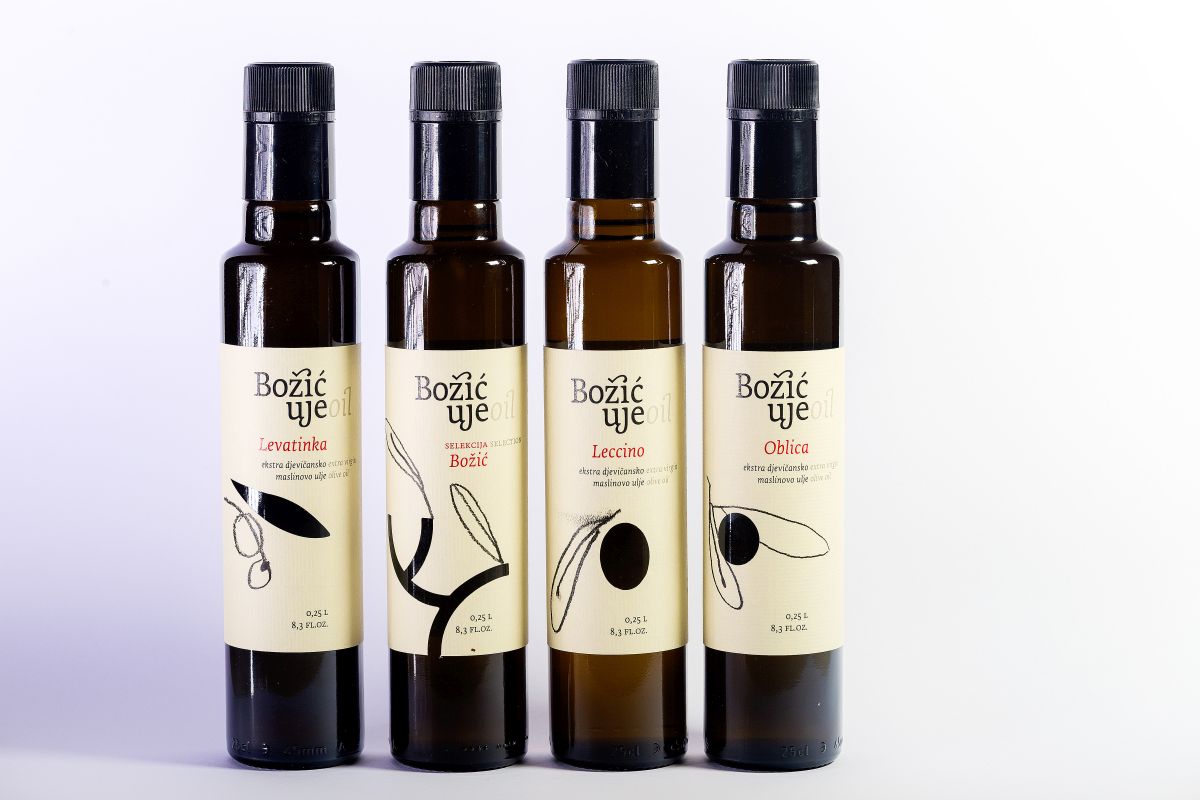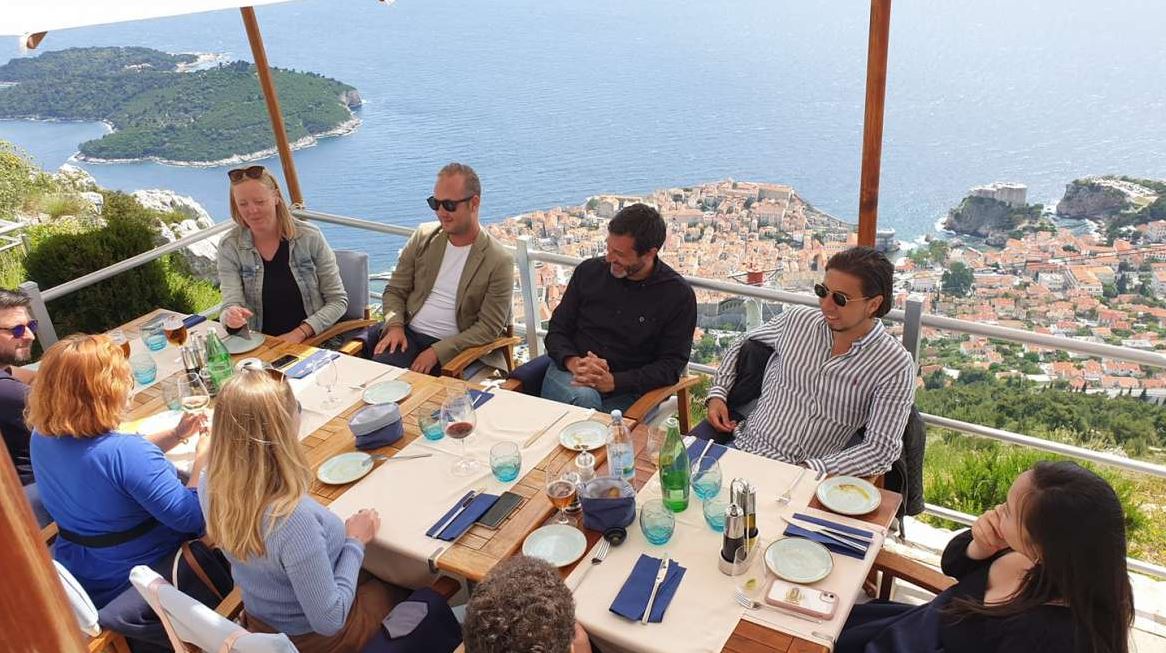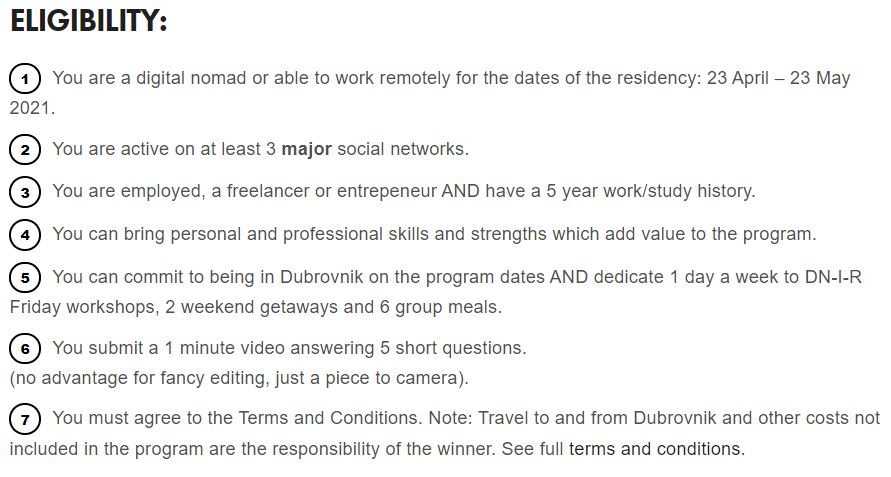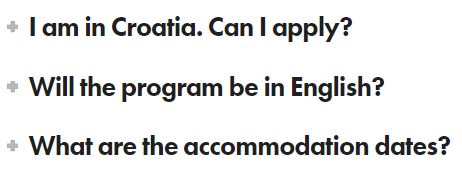Croatia Registers 321 New Coronavirus Cases, 11 Deaths
ZAGREB, 28 May 2021 - In the past 24 hours 321 new coronavirus cases and 11 COVID-19 deaths have been registered in Croatia, the national COVID-19 response team said on Friday.
There are 2,726 active cases, including 904 hospitalised patients, of whom 95 are on ventilators, while 11,723 persons are self-isolating.
So far 1,999,818 persons have been tested for the virus, including 5,273 in the past 24 hours, with the share of positive tests standing at 6%.
By Thursday 1,686,585 vaccines have been administered, with 1,240,309 persons receiving the first dose and 446,276 both.
So far Croatia has registered 355,617 coronavirus cases, 7,992 deaths and 344,899 recoveries, including 552 in the past 24 hours.
For all you need to know about coronavirus specific to Croatia, including travel, border and quarantine rules, as well as the locations of vaccination points and test centres up and down the country, make sure to bookmark our dedicated COVID-19 section and select your preferred language.
Banožić, Hranj Extend Greetings on Croatian Army Day
ZAGREB, 28 May 2021 - Defence Minister Mario Banožić and military Chief-Of-Staff Admiral Robert Hranj on Friday extended greetings on Croatian Army Day, Croatian Ground Army Day and the Croatian National Guard's 30th anniversary, saying Croatia was proud of its history and the Homeland War and focused on the future.
Banožić recalled the lining up of the Croatian National Guard 30 years ago in front of then president and supreme commander Franjo Tuđman, saying that in an imposed war, in fighting for freedom and independence, the resolute and brave Croatian youth in a short time grew into a reputable military power capable of defending and liberating the then occupied parts of the country.
"We proudly remember the glorious final operations, notably Flash and Storm, when the Croatian Army brought victory and ensured peace and freedom for the Croatian people."
Banožić said he was proud of the achievements of the Croatian Army at home and abroad, thanking every member for their honourable and professional service.
He said today was an occasion to remember all the defenders who gave their lives for Croatia's freedom, calling on all soldiers and officers to continue to protect their legacy.
Admiral Hranj said the Homeland War was a symbol of the strength of Croatia's citizens and the patriotism of its soldiers, adding that the present-day Armed Forces were built on those foundations.
He said the army's fundamental missions remained the defence of the country, contributing to international stability and assisting civilian institutions.
The Croatian Army is developing as an important part of all of the state's potential and as an inseparable part of society, he added.
President pays tribute to those killed in Homeland War
President and Armed Forces Supreme Commander Zoran Milanović today laid wreaths at Zagreb's Mirogoj cemetery and paid tribute to those killed in the Homeland War and all soldiers and police officers. He was accompanied by Hranj.
For more about politics in Croatia, follow TCN's dedicated section.
Zagreb Seller, Taxi Driver Verbally Abuse Two Bulgarians, Jutarnji List Says
ZAGREB, May 28 2021 - The incidents against Bulgarians in Zagreb over which Prime Minister Andrej Plenković has accused President Zoran Milanović of incitement consisted of verbal abuse against two Bulgarian nationals by a seller at a farmers' market and a taxi driver, Jutarnji List said on Friday.
Police are investigating the two cases, while a third one was solved by intervention of the Bulgarian Embassy, the daily said.
According to the first police report, the target was an elderly Bulgarian lady who said that after she entered a taxi, the driver rudely told her that she had closed the door too hard.
He asked her where she was from and when she told him, he told her, "You Bulgarians with your dirty politics towards Macedonia are coming here to live in our beautiful Croatia," the report says, adding that the driver stopped the car and asked the lady to pay and leave.
She did so and asked him to help her get her heavy bag from the trunk, the report says, adding that he threw the bag, causing the lady to fall to the ground.
In the second case, another Bulgarian woman reported that objects were thrown at her husband in a farmers' market after a discussion on the origin of the goods on sale, which led to a question about the man's origin.
The seller started insulting him, saying that "Bulgaria is blackmailing the unfortunate Macedonia," and threw an object at him, the report says.
In the third case, the son of a Bulgarian woman was allegedly banned from a Zagreb kindergarten, but, Jutarnji List said, the case was solved following suspicion of discrimination and an intervention by the Bulgarian Embassy.
Plenković said on Thursday that Milanović was responsible for a complaint the government and the Foreign Ministry received from the Bulgarian Embassy following assaults on three Bulgarian nationals in Croatia because, he said, of Milanović's recent statements about Bulgaria.
During the Brdo-Brijuni summit on the Western Balkans last week, Milanović criticised Bulgaria, without naming it, for demanding that North Macedonia change its history textbooks as a condition for its EU accession.
Bulgaria's Director General for European Affairs Rumen Alexandrov called Milanović's statement "unacceptable and unwarranted," however Milanović stood by his words.
For more, follow TCN's news section.
Hvar Olive Oil Makes Triumphant Return From New York Competition
May 28, 2021 - Olive oil is a must on Croatian tables, but its impact and quality transcend borders. A great example is Hvar olive oil, which has made a triumphant return from an international competition in New York.
Turistickeprice.hr reports that Hvar olive oil again achieved great success at the prestigious New York International Olive Oil Competition. It is a continuation of the successful tradition of Hvar olive growers on the international scene.
Despite its impeccable natural beauty and rich history, the island of Hvar is often visited by tourists and recognized as one of the top destinations for summer vacations. However, a real small gastronomic scene takes place on the island of Hvar, and the most commonly used ingredient is certainly Hvar olive oil.
There are more than 200,000 olive trees on Hvar, and the latest awards from the world competition are an indicator of quality. Last year, Hvar olive growers from New York returned with three medals, and this year they were even more successful.

Christmas oil - Oil mill Božić-Svirče
Namely, out of 87 awarded samples from Croatia, as many as seven come from the island of Hvar, from five olive oil producers. Two gold medals went to the trade Zvir for olive oils Radojković Levantinka and Radojković Forms. One gold, for Oblica oil and a silver medal for the Christmas Selection, was awarded to Uljara Božić - Svirče d.o.o. Gold medals were also received by: OPG Čurin for oil Eva Marija, then OPG Magdalena Plenković for oil Atena, and OPG Makjanić Moškatelo for their MMuje.
Last year on the island of Hvar was extremely fruitful, not only with the amount of oil produced but also with very good quality, which this year was confirmed by the most prestigious competition in New York. The world competition for olive oil NYIOOC is the largest. The annual list of award winners is considered an authoritative guide to the best extra virgin olive oils of the year.
Dark green olive groves have been formed in this area since ancient times, and so far there have never been more, producing renowned oils with the highest recognition. The most common olive variety is oblica, with a representation of 85%, followed by lastovka, levatinka, and the somewhat newer varieties lećino and pandolino. More than 900 small and large producers talk about the tradition of nurturing olives for their products. It is therefore not surprising that every dish on the island of Hvar is sprinkled with this liquid gold.
When it comes to olive oil, Croatia is one of the leading countries in the industry. From Istria to Dalmatia, you can find all the information you need to know about the origins, processes, and where to buy Croatian olive oil on the Total Croatia page, now in your language!
For more news like this, follow our made in Croatia section.
HBOR Offering Favourable Loans to Help Businesses Recover from Pandemic
ZAGREB, 28 May 2021 - The European Investment Fund has approved a €35 million guarantee to the Croatian Bank for Reconstruction and Development (HBOR), allowing it to originate a portfolio of €50 million to mitigate the economic consequences of the COVID-19 pandemic, HBOR said on Friday.
HBOR will approve loans at interest rates reduced by 0.403 percentage points or only with bills of exchange and promissory notes as collateral.
The EIF guarantee stems from the Pan-European Guarantee Fund (EGF), a €25 billion guarantee facility set up by the European Investment Bank Group in 2020 to accelerate the post-COVID-19 recovery of the European economy.
The EGF guarantee will allow HBOR to offer loans to Croatian SMEs and small mid-caps under more favourable terms, including reduced interest rates or lower collateral requirements. The loans will available to SMEs and small mid-caps operating in some of the hardest hit sectors of the Croatian economy, including tourism and manufacturing.
For more about business in Croatia, follow TCN's dedicated business section.
Imitation & Flattery, as Benidorm Copies Dubrovnik Digital Nomad-in-Residence Program
May 28, 2021 - It seems that the successful Dubrovnik Digital Nomads-in-Residence Program has its admirers, as the Benidorm Tourist Board lifts the entire concept and launches it as its own. Not cool.
I have been writing about digital nomad tourism for about 2 years now. I am far from being an expert, but the more I learn, the more I see that the letter 'C' is important.
C for Community
C for Creativity
C for Co-Creation
C for Cooperation
C for Collaboration
C for Cool thinking out of the box
But definitely NOT
C for Copying someone else's Concept and posting it as your own without any Credit
As one of the organisers of the Dubrovnik Digital Nomads-in-Residence Program, the first of its kind in the world, I am taking a breather after an intense month of co-creative ideas between our 10 resident nomads, the City of Dubrovnik, Dubrovnik Tourist board, local community, and programme organisers. The final product and recommendations are outstanding, and we will be exploring them in detail in the coming weeks. The city has already committed to implementing some key findings, and the reaction to the first story on the program's findings has been really encouraging. Read more in Beyond the Walls: 4 Weeks in Dubrovnik Not Enough, Say DNIR Digital Nomads.
The collaboration between the 10 nomads we chose was exceptional. Several were experts in related fields such as skilled migration and the future of work. They were attracted to Dubrovnik, which they knew was far from a polished nomad destination, by the innovative programme and dynamic concepts. None of which I can take credit for - full credit to Saltwater Nomads and their program team for coming up with the entire Digital Nomads-in-Residence concept - I was just the guy who wrote the words.
In a post-program interview with one of the nomads who is an expert on the future of work, I asked him for his reflections on the 4 weeks. He had been attracted by the innovative program, was blown away by the quality of the delivery, the destination, and the design-thinking workshops. The concept was excellent, one that the Saltwater team could export to numerous destinations.
And then... this.
I would not go as far as accusing the Benidorm Tourist Board of cutting and pasting the Saltwater concept in its entirety and posting is as their own. For starters, Saltwater Nomads knows how to spell 'Applications' - see above.
But there are some striking resemblences, not only in the concept, but also the terms and conditions. Consider the following:
The Benidorm conditions:
Eligibility for Dubrovnik 6 weeks earlier.
A sample from the Benidorm FAQs:
Well done for managing to change the words Spain and Spanish without any spelling mistakes this time.
etc. etc.
My favourite, however, was the video announcing the winners:
Benidorm:
Dubrovnik 6 weeks earlier.
Imitation is the sincerest form of flattery, they say. Nikola Tesla, who was born not far from Dubrovnik, in the village of Smiljan in modern-day Croatia, had some thoughts on the matter in my favourite quote of his.
I don't care that they stole my idea, I care that they don't have any of their own.
Growing up in Manchester in the 1980s, Benidorm was synonymous with the trashiest tourism for Brits. Lager Louts Central. If stealing someone else's ideas is part of the official stratgy of the local tourist board, one begins to wonder about Benidorm...
The irony, of course, is that the whole concept of digital nomad tourism is about community and collaboration. Starting a competition based on stealing someone else's ideas is hardly the best approach, especially if you are the official tourist board.
Not cool, Benidorm. If you wanted to Contact, Compensate or Collaborate (there goes the big C again), you can find them at Saltwater Nomads.
Me personally? A little selfishly, I am thrilled about Benidorm stealing the concept. My job is to write about the program, as well as producing a report on its global impact. Imagine that Saltwater and TCN, in partnership with the City of Dubrovnik and Dubrovnik Tourist Board, deliver Croatia's first-ever digital nomad conference in October 2020, and then the world's first Digital Nomad-in-Residence program in April, 2021. Only to find the concept stolen and used internationally, without credit or permission, just 6 weeks later. I will add that to the report on reach, with a little note saying that perhaps our concepts were not so crazy.
For more on digital nomads in Croatia, check out the dedicated TCN section.
Croatian Employers Propose Keeping Economic Measures in Place Longer
May the 28th, 2021 - Croatian employers have proposed that the Croatian Government keep some economic measures, namely the job preservation measures introduced to try to combat the economic effects of the pandemic in 2020, in place for longer than planned.
As Poslovni Dnevnik/Ana Blaskovic writes, with the abolition of some of the country's epidemiological measures with even more relaxations to come in the foreseeable future, the Croatian Employers' Association (HUP) sent to the Minister of Finance Zdravko Maric proposals for a new set of economic measures.
The existing ones, this association of Croatian employers says, should be very carefully and only gradually rolled back in order to avoid a wave of bankruptcies and layoffs, and the introduction of several new ones are crucial in order to preserve liquidity and start an investment cycle.
“Maintaining liquidity isn't just a matter of a period of closure - it's necessary to provide liquidity to a company for a longer period of time, so that the business can start up again (and return to the point of coverage) at the moment when restrictions (work, movement) are removed,'' say this group of Croatian employers.
They noted that small and micro enterprises, which are the most numerous Croatian enterprise, are more at risk than others as measures expire and recovery is possible only with investment momentum.
"Although not all activities are equally affected by this crisis, for the sustainable growth of the overall economy, it's necessary to start up business again in all sectors. However, given the effect of the coronavirus pandemic, it's questionable to what extent companies are able to finance any new investment cycle on their own,'' the Croatian employers stated.
Although savings have increased, access to finance is limited, so support from the state in the form of additional measures and programmes is absolutely necessary, as are different types of grants and incentives to launch investments.
Aware of the jump in government indebtedness from the association of Croatian employers, they claim that the risk of a sudden relaxation of economic measures is significantly higher than additional (favourable) borrowing.
"The worst thing would be that after the introduction of all of those measures and everything we then endured following the suspension of those measures, that the affected companies remain in trouble and start firing people. Why would the owners of affected businesses have to bear the loss of revenue all on their own? They aren't any more to blame for the consequences of the pandemic than business owners who just happen to not be particularly affected by this particular crisis,'' they stated.
Therefore, in their range of requests addressed to the Minister of Finance, they propose to retain support for job preservation until companies achieve at least 90 percent of their respective pre-pandemic revenues.
"It is extremely important that the decision to get rid of certain measures to support the economy be introduced gradually, depending on the epidemiological situation, but also on the situation in a particular sector so as not to cause a wave of bankruptcies and layoffs," said the Croatian employers, supporting OECD and IMF recommendations, as well as those recommended by the EC.
They're also asking the government to continue covering part of companies' fixed costs, taking into account the percentage drop in revenues, ensuring easy access to liquidity and working capital loans with guarantee schemes for the SME segment and the possibility of converting loans into grants, continuing the moratorium until at least the end of 2021 and investing in Industry 4.0.
For large Croatian companies, they propose support for investments by increasing support in the Investment Incentives Act and additional support to companies for co-financing a project from EU funds.
Among the proposals are the possibility of compensating receivables between companies for preventing chain illiquidity, speeding up the determination of bad loans, speeding up bankruptcies and the liquidations of companies, additional (non) tax relief or their abolition, and more tax relief for investments.
"We believe that the government measures introduced as a result of the coronavirus crisis should continue as long as we have enterprises who cannot function and preserve jobs on their own without assistance measures," the association of Croatian employers concluded in their request to the Finance Ministry.
For more, follow our business section.
Istrian Kabola Winery Sees Inheritance Turn into 130 Years of Tradition
May the 28th, 2021 - Croatia is very well known on the wine map for the fantastic products it sends out into the world, and the Istrian Kabola winery has seen inheritance turn into 130 years of tradition.
As Poslovni Dnevnik/Marta Duic writes,reliability, tradition and consumer confidence are the key to the success of any wine heritage story, and those points are all more than well known and applied by the popular Istrian Kabola winery, which is set to celebrate its 130th anniversary at the end of this month.
As many as three generations of the Markezic family have been making wine there, and they have been writing their own very long wine story since way back in 1891, when ''nono Ivan'' filled up the very first bottles of Muscat of Momjan, a variety that still intrigues those familiar with the wine world today.
Respecting tradition and nature, the current owner of the Istrian Kabola winery, Marino Markezic, with his innovative approach to winemaking, has positioned the family winery at the very top of the Croatian wine scene, which is no easy task. He was the one to open the Istrian Kabola winery officially in Kanedol near Momjan back on May the 29th, 2005, and this date is symbolically celebrated as a birthday.
The very first Istrian winery in terms of eco production
The Istrian Kabola winery is the very first Istrian winery that maintains its vineyards according to the stringent principles of eco production. With twenty hectares of vineyards to think about and take proper care of, Kabola produces about 100,000 bottles of wine a year, as well as another much loved Croatian product - olive oil, which also carries a bio-certificate. Although Croatia is their most important market, their exports to various countries have been growing more and more over recent years.
They mainly export to EU and non-EU European countries - Austria, Slovenia, Germany, Italy, France, Belgium, the Netherlands, Great Britain, Serbia, Bosnia and Herzegovina and Montenegro, and some of their wine travels over the Atlantic and finds its place on dinner tables in the United States. These are typically the Kabola-made wines that are chosen by more demanding consumers, both in retail and restaurants, hotels, and 25 percent of the quantities produced are exported.
Prolonged macerations such as those aged in amphorae or wooden barrels are especially sought after. The Istrian Kabola winery isn't only a synonym for top quality wines, as guests from all over the world, as well as various celebrities, come to this Istrian estate in person.
It was on this very estate that a 2Cellos video and scenes for The Hitman’s Wife Bodyguard, among other things, were filmed.
"We're really looking forward to the summer tourist season and we hope that it will be better than last year when, due to very well known circumstances, we had a drop in visits when compared to 2019. Although results like those from two years ago aren't expected yet, our regular guests who spend their summers in Istria never miss out on a visit to our estate for wine tasting and they've already announced their arrival. Since the opening of the Istrian Kabola winery this spring, we've been mostly visited by local guests, but with the easing the anti-epidemic measures, we expect guests from our traditional foreign markets,'' said Marino Markezic, Kabola's owner.
''We're constantly investing''
It's worth noting that the Istrian Kabola winery is mostly visited by guests from Slovenia, Italy, Austria, Germany, France, and a large number of guests come from the Asian market.
“Despite the great challenges for winemakers, the last wine year was great and provided wines of excellent quality. However, the challenges of the coronavirus pandemic were too great, we had to adapt quickly to the new situation and immediately switched to online sales and increased our social media presence and marketing to ensure our customers could easily reach our wines in spite of the lockdowns.
We're constantly investing in equipping the winery and cellar in order to achieve the best possible quality of wine and olive oil in our production process,'' concluded Markezic.
For more, follow Made in Croatia. For all you need to know about Croatian wine, bookmark our dedicated section.
Where Will Croatian Home Coronavirus Test Results be Accepted?
May the 28th, 2021 - Croatia is set to follow in the footsteps of multiple European countries such as the United Kingdom who have made the possibility of testing for the novel coronavirus at home an option for a long time now. While the move will relieve the pressure on testing centres and just be more convenient in general, where will Croatian home coronavirus test results be actually accepted?
As Poslovni Dnevnik writes, a member of the Management Board of Medika, Jakov Radosevic, was a recent guest on New Day/Novi Dan and commented on the introduction of rapid tests for home use that will appear on the Croatian market very soon.
"These home tests are very reliable, their reliability is over 98 percent," assured Radosevic.
He added that Medika had already started with the distribution of home coronavirus test kits to pharmacies and specialised stores, which will be the only ones able to sell these tests.
"All Croatian pharmacies and specialised stores will have this test in their offer," said Radosevic, and explained what kind of test it is.
"This is the first test approved by the European Union, it is a fast antigen test for at home self-testing. The instructions are tailored to users, which are non-medical people.
Asked whether the Croatian home coronavirus test results could be used before coming to a wedding or other organised event, as part of the conditions for a negative test result for coronavirus, Radosevic said he assumed they would be accepted.
“The information we received is that 120 people are to be allowed to attend an event and that they would have to have proof that they have recovered from coronavirus in the last six months, that they've been fully vaccinated at least two weeks before the event or that they had a negative test result, PCR or antigen. Accordingly, my assumption is that the Croatian Institute of Public Health has recommended that this test be accepted as well,'' said Radosevic.
The price of the Croatian home coronavirus test kits will be between 75 and 80 kuna.
For all you need to know about coronavirus specific to Croatia, including travel, border and quarantine rules, as well as the locations of vaccination points and testing centres across the country, make sure to bookmark our dedicated COVID-19 section and select your preferred language.
Croatian Demographic Crisis Continues with 20,000 People Lost Annually
May the 28th, 2021 - The coronavirus crisis might be the ''crisis of the moment'' as morbid as that sounds, but the Croatian demographic crisis is never far from the surface. The issues with people not only leaving but dying in Croatia are dire, and with losses of 20,000 people per year, plus emigration, the country is in a horrendous position demographically.
As Poslovni Dnevnik/Ana Blaskovic writes, the number one topic which needs to be discussed is demography because Croatia at the very end of the world in terms of demographic trends, warned Marin Strmota from the Faculty of Economics in Zagreb. By combining emigration and population loss, Croatia is losing its working-age population, which has devastating consequences. With the fall in birth rates, Strmota warns, we're losing 20,000 people a year, and if emigration is added to that account, the Croatian demographic picture is the worst on the planet.
"The most affected countries are Lithuania, Latvia, Romania, Bulgaria and Croatia," Strmota said. In the last wave of emigration to Ireland and Germany in the last 7-8 years, about 400,000 people with Croatian citizenship emigrated.
"The problem is the age structure, it's an economic problem. The able-bodied people emigrate, which means that the share of those who pay into the pension and social security system is continually decreasing. Unfortunately, we can't escape from that, even the most optimistic forecasts don't see an increase in the workforce happening,'' added Strmota.
An additional but pressing issue for the Croatian demographic picture is that the labour market is entered late only to be left very early on, and there is an imbalance of what employers need and the skills and knowledge that Croatian workers have,'' added Strmota's faculty colleague Kresimir Ivanda.
“A fifth of those between the ages of 25 and 29 aren't working or are looking for work, and the situation is even worse with early retirements after the age of 50 when economic activity is rapidly declining,” he says.
"Croatia has the second shortest working life in Europe, of a mere 33 years, and 78 years is the average life expectancy," Ivanda illustrated.
"In terms of education and workforce, Croatia is currently where developed countries like Germany were decades ago. Fortunately, or unfortunately, the European Union is a single labour market and young people can apply to work anywhere in the bloc, and Croatia must figure out how to be the best of all to attract workers, and not just be a transit zone to other countries,'' he concluded.
For more, follow our lifestyle section.








